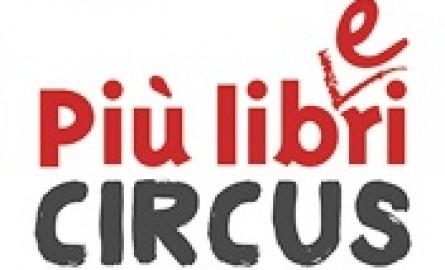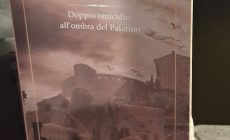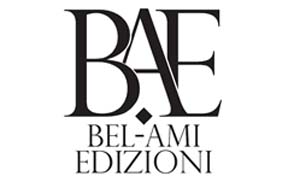By our special correspondent Antonella Narciso
– English Version –
(linguistic adaptation by Susanna Lai)
 How is it that tens of thousand people have kept a secret for almost thirty years? And what makes famous representatives of different cultural fields take part to this conspiracy of silence? It is just to answer to this and other questions that Culturalismi staff has left for Götembort, where since 1985 a homonymous book fair has taken place. Born to meet the needs of North-European publishing industry executives, the fair has been holding an ever-increasing appeal to the wide public of local readers over the last decades. Last year’s figures bear witness to that: more than 97000 visitors, 833 of whom were writers and speakers from 29 different countries, 441 workshops aimed at fostering people’s meetings and discussions beyond the selling purpose of the fair.
How is it that tens of thousand people have kept a secret for almost thirty years? And what makes famous representatives of different cultural fields take part to this conspiracy of silence? It is just to answer to this and other questions that Culturalismi staff has left for Götembort, where since 1985 a homonymous book fair has taken place. Born to meet the needs of North-European publishing industry executives, the fair has been holding an ever-increasing appeal to the wide public of local readers over the last decades. Last year’s figures bear witness to that: more than 97000 visitors, 833 of whom were writers and speakers from 29 different countries, 441 workshops aimed at fostering people’s meetings and discussions beyond the selling purpose of the fair.
For four days, starting from September 22, the Swedish town will live to the rhythm of hundreds of pages turned within the 14.108-square-metre area inside the Svenska Mässan, the stately congress and exposition centre. In the limelight there will be three German speaking countries, Austria, Germany and Switzerland, peacefully united by the theme “The länder ett sprǻk” (three countries, one language) . As for writers, and just to mention some of them, you can meet Herta Müller, Nobel Prize winner and then performer Nina Hagen, and yet contemporary authors such as Cornelia Funke, German writer of fiction for children (her “Ink Heart” was adapted for the screen by director Iain Softley in 2008). Furthermore you can meet Swiss author Peter Stamm and other writers who are less known in our country, like in the case of Terézia Mora, the Hungarian writer whose novel “Everyday” was published by Mondadori in 2004, or Bulgarian author Dimitré Dinev. The Babel like echo produced by different languages, however, goes far beyond some idiom of German origin. It extends to the Peruvian Nobel prize Mario Vargas Llosa, French writer Emmanuel Carrère, the Algerian Salim Bachi, winner of Goncourt prize with his first work “Le chien d’Ulysse” in 2001, Spanish writer Ildefonso Falcones, the American Jonathan Franzen, the Bielorussian poet Andrej Chadanovitj, and Finnish writer Sofi Oksanen are only some of the authors willing to take part to discussions open to the large crowd of curious people, who wander along the stands as well as to a limited public on occasion of fee-paying workshops.
The conference topics are quite various: they range from change in speech discussed by Heimat, for instance, to the exploration of children’s feeling about Pippi Longstocking. Yet they vary from an analysis of strategies, worked out in Germany and Sweden in order to spur young people grown up in the internet era to increase their reading, to the examination of Swiss Polyphonic language system There are so many and interesting occasions that a visitor might end up dreaming about forwarding a teleport request to commander Kirk, in order to visit all the stands and appease his cultural desire. But like all good stories, also this wonderful cultural event has a dark side: a lot of conferences and discussions are held only in the local language. This is acceptable, though regretfully, only in cases like the presentation of Norwegian writer Dag Solstad’s last work ”Himmel over London”, whose previous novel we reviewed some months ago, or also in the case of the beloved Swedish writer Håkon Nesser. Both their works are clearly addressed at a local public. It seems, however, that less-linked-to-marketing needs activities could provide interesting ideas for a public that is larger than the Scandinavian one. This viewpoint has been shared by the French writer Emmanuel Carrère, who carried out a three-quarter-of-an-hour discussion in English including some occasional lexical epiphanies in French. Yet it was shared by the Bielorussian singer-songwriter Zmister Vajtsiusjkevitj, who found it easier to sing and play the guitar than to deal with the Beatles’ language syntax.
It has been a journey characterized by light and only a few clouds, just as the sky above Götemborg in a Europe that finds its deepest meaning when it is able to be open-minded and curious about the polyphony of its choruses.
For further information see info about the Book Fair
http://www.bok-bibliotek.se/en/about-goteborg-book-fair/what-is-goteborg-book-fair/
For further information about the town of Götemborg:
http:// www.goteborg.com/
For further information on last Dag Solstad’s novel:
https://www.culturalismi.com/culturalismi/letterature-straniere/prove-fallite-di-comunicazione.html












Leave a Reply
Your email address will not be published. Required fields are marked (required)